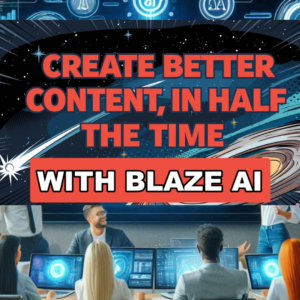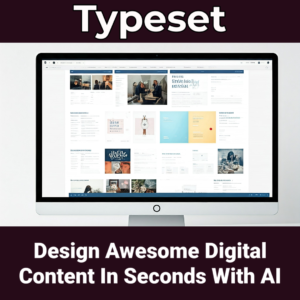Elon Musk, known for his futuristic ideas, has introduced xAI. This project aims to push the limits of artificial intelligence (AI). Musk wants xAI to create the most advanced AI systems that can change industries like marketing, healthcare, and finance. He believes AI should be powerful, ethical, and helpful to everyone.
Musk thinks AI can solve big problems like climate change and healthcare issues. But he also stresses the need to develop AI responsibly. He supports transparency, ethical practices, and safety measures to make sure AI benefits society.
What is Colossus?
Colossus is the latest and most ambitious project from xAI. It’s an AI training system designed to handle huge amounts of data and perform complex tasks very quickly. The name “Colossus” fits because this system is truly massive in both size and capability.
Colossus is powered by 100,000 Nvidia H100 GPUs, making it the most powerful AI training system in the world. Soon, it will double its capacity to 200,000 GPUs, including 50,000 H200s. This will make it even more powerful.
The main job of Colossus is to train AI models. Training involves feeding the AI system lots of data so it can learn patterns, make predictions, and improve over time. The more data and power it has, the better it gets.
The Role of Nvidia GPUs
Nvidia GPUs are the core of Colossus. These graphics processing units are great for handling many tasks at once, making them perfect for AI training. The Nvidia H100 GPUs in Colossus offer top-notch performance and efficiency, allowing the system to process huge amounts of data quickly and accurately.
The upcoming addition of 50,000 H200 GPUs will make Colossus even better. These new GPUs will offer greater performance, enabling Colossus to handle more complex tasks and larger datasets. This upgrade will make Colossus the most advanced AI training system in the world.
The Journey to Launch
Timeline of Development
The development of Colossus was completed in just 122 days, which is incredibly fast. This shows how efficient and dedicated the xAI team is. From the initial design to the final testing, every step was carefully planned and executed.
The journey began with the idea of Colossus. The xAI team saw the need for a powerful AI training system that could handle massive amounts of data and perform complex tasks. Once the idea was clear, the team moved on to design the system’s architecture and specifications.
Key Milestones
Several key milestones marked the development of Colossus. The first was getting the Nvidia H100 GPUs, the core components of the system. Next was integrating these GPUs into the system’s architecture, followed by rigorous testing to ensure optimal performance.
Another significant milestone was developing the software and algorithms that power Colossus. These algorithms are designed to process data efficiently and train AI models accurately. The final milestone was the successful launch of Colossus, marking a new era in AI training.
Technical Specifications of Colossus
Hardware Components
Nvidia H100 GPUs
The Nvidia H100 GPUs are the main hardware components of Colossus. These GPUs are designed for high-performance computing and can handle many tasks at once. This makes them perfect for AI training, where large amounts of data need to be processed simultaneously.
The H100 GPUs offer several advantages, including high computational power, energy efficiency, and scalability. These features enable Colossus to process vast amounts of data quickly and accurately, making it the most powerful AI training system in the world.
Upcoming H200 GPUs
The addition of 50,000 H200 GPUs will make Colossus even more powerful. These new GPUs are expected to offer greater performance, enabling the system to handle more complex tasks and larger datasets. The H200 GPUs will also improve energy efficiency, reducing the overall power consumption of the system.
The upgrade to H200 GPUs is part of xAI’s long-term strategy to continuously improve Colossus. By incorporating the latest hardware technologies, xAI aims to maintain its position as a leader in AI training and development.
Software and Algorithms
AI Training Algorithms
The software and algorithms used in Colossus are designed to process data efficiently and train AI models accurately. These algorithms are based on advanced machine learning techniques, including deep learning and neural networks.
Deep learning algorithms enable Colossus to learn from vast amounts of data and make accurate predictions. Neural networks, on the other hand, mimic the human brain’s structure and function, allowing the system to recognize patterns and make decisions.
Data Processing Capabilities
Colossus’s data processing capabilities are unmatched. The system can handle large datasets and perform real-time analysis, making it ideal for applications that require quick and accurate decision-making. This includes everything from autonomous vehicles to financial forecasting.
The combination of powerful hardware and advanced algorithms enables Colossus to process data at unprecedented speeds. This allows the system to train AI models more efficiently, resulting in faster and more accurate predictions.
The Competitive Landscape
Major Players in AI
Mark Zuckerberg’s AI Initiatives
Mark Zuckerberg’s AI initiatives are among the key competitors of xAI. Facebook, now Meta, has been investing heavily in AI research and development. Their focus is on developing advanced AI systems for various applications, including social media, virtual reality, and augmented reality.
Meta’s AI initiatives include projects like DeepFace, an advanced facial recognition system, and M, a virtual assistant. These projects showcase Meta’s commitment to pushing the boundaries of AI technology. However, with the launch of Colossus, xAI is poised to challenge Meta’s dominance in the AI space.
Other Key Competitors
Other major players in the AI industry include Google, Microsoft, and Amazon. Each of these companies has its own AI research and development projects, focusing on different applications and technologies.
Google’s AI initiatives include projects like TensorFlow, an open-source machine learning framework, and DeepMind, a research lab focused on developing general AI. Microsoft’s AI efforts are centered around Azure, their cloud computing platform, and various AI-powered tools and services. Amazon, on the other hand, is leveraging AI for applications like Alexa, their virtual assistant, and AWS, their cloud computing platform.
xAI’s Market Position
Strengths and Weaknesses
xAI’s strengths include its cutting-edge technology and rapid development capabilities. The launch of Colossus showcases xAI’s ability to develop powerful AI systems quickly and efficiently. Additionally, xAI’s focus on ethical AI development sets it apart from other companies in the industry.
However, xAI also faces several challenges. One of the main weaknesses is the scalability of its technology. As the demand for AI continues to grow, xAI will need to ensure that its systems can scale to meet this demand. Additionally, xAI will need to navigate the competitive landscape and differentiate itself from other major players in the industry.
Opportunities and Threats
Opportunities for xAI include expanding into new markets and applications. The potential applications of AI are vast, and xAI can leverage its technology to enter industries like healthcare, finance, and manufacturing. Additionally, xAI can explore partnerships and collaborations to further enhance its capabilities.
However, xAI also faces several threats. Regulatory challenges and competitive pressures are among the main threats. As AI technology continues to evolve, regulatory bodies may impose new rules and guidelines that xAI will need to comply with. Additionally, the competitive landscape is constantly changing, and xAI will need to stay ahead of the curve to maintain its market position.
Implications for the Marketing Industry
AI in Marketing
Enhancing Marketing Strategies
AI has the potential to significantly enhance marketing strategies. By leveraging AI, marketers can gain deeper insights into customer behavior and preferences. This allows them to create more targeted and personalized marketing campaigns, resulting in higher engagement and conversion rates.
AI can also help marketers optimize their strategies in real-time. By analyzing data and making predictions, AI can identify trends and patterns that marketers can use to adjust their campaigns. This enables marketers to stay ahead of the competition and make data-driven decisions.
Data-Driven Decision Making
Data-driven decision making is one of the key benefits of AI in marketing. By analyzing large amounts of data, AI can provide valuable insights that marketers can use to make informed decisions. This includes everything from identifying the best channels for marketing campaigns to predicting customer behavior.
AI can also help marketers measure the effectiveness of their campaigns. By analyzing data and tracking key performance indicators, AI can provide insights into what is working and what is not. This allows marketers to optimize their strategies and achieve better results.
Practical Applications
Content Creation
AI can automate content creation, generating written, audio, and video content at scale and with high quality. This includes everything from blog posts and social media updates to product descriptions and video scripts.
By leveraging AI for content creation, marketers can save time and resources while maintaining high-quality standards. Additionally, AI can help marketers create more personalized content by analyzing customer data and tailoring content to individual preferences.
Customer Insights
AI can provide valuable customer insights, helping marketers to better understand their target audience and tailor their campaigns accordingly. By analyzing data from various sources, AI can identify trends and patterns that marketers can use to create more effective campaigns.
For example, AI can analyze social media data to identify customer sentiment and preferences. This allows marketers to create campaigns that resonate with their audience and drive engagement. Additionally, AI can help marketers identify potential customers and target them with personalized campaigns.
Future Prospects of Colossus
Scaling Up
Doubling GPU Capacity
The planned doubling of GPU capacity will enable Colossus to handle even more complex tasks and larger datasets. This expansion will further enhance its computational power, making it the most advanced AI training system in the world.
The addition of 50,000 H200 GPUs will not only increase the system’s capacity but also improve its performance and efficiency. This will enable Colossus to process data more quickly and accurately, resulting in faster and more accurate AI models.
Long-Term Goals
xAI’s long-term goals include further advancements in AI technology and expanding its applications across various industries. By continuously improving Colossus and incorporating the latest hardware and software technologies, xAI aims to maintain its position as a leader in AI training and development.
Additionally, xAI is focused on developing ethical AI systems that benefit society as a whole. This includes ensuring transparency, accountability, and robust safety measures in all of its AI projects.
Innovations on the Horizon
Emerging Technologies
Emerging technologies such as quantum computing and neuromorphic engineering could further enhance the capabilities of Colossus. Quantum computing, for example, has the potential to revolutionize AI by enabling faster and more efficient computations.
Neuromorphic engineering, on the other hand, involves designing hardware that mimics the human brain’s structure and function. This could lead to more advanced and efficient AI systems that can process data in a way that is similar to how humans think and learn.
Potential Breakthroughs
Potential breakthroughs in AI research could lead to new applications and more efficient AI systems. This includes advancements in machine learning algorithms, data processing techniques, and hardware technologies.
By staying at the forefront of AI research and development, xAI aims to continuously improve Colossus and explore new possibilities for AI applications. This will enable xAI to maintain its competitive edge and drive innovation in the AI industry.
Conclusion
Summary of Key Points
The launch of Colossus marks a significant milestone for xAI, positioning it as a leader in the AI industry with the most powerful AI training system in the world. Colossus is powered by 100,000 Nvidia H100 GPUs and is set to double its capacity to 200,000 GPUs, including 50,000 H200s, in the coming months.
The development of Colossus was completed in just 122 days, showcasing the efficiency and dedication of the xAI team. The system’s advanced hardware and software capabilities enable it to process vast amounts of data quickly and accurately, making it ideal for AI training.
The Road Ahead for xAI
The future looks promising for xAI, with plans to scale up Colossus and continue innovating in the field of artificial intelligence. By incorporating the latest hardware and software technologies, xAI aims to maintain its position as a leader in AI training and development.
Additionally, xAI is focused on developing ethical AI systems that benefit society as a whole. This includes ensuring transparency, accountability, and robust safety measures in all of its AI projects. With these goals in mind, xAI is poised to drive innovation and make a positive impact on the world.
FAQs
What is xAI?
xAI is an initiative by Elon Musk aimed at developing advanced artificial intelligence systems. The goal is to create AI that is powerful, ethical, and beneficial to humanity.
What is Colossus?
Colossus is an AI training system developed by xAI. It is powered by 100,000 Nvidia H100 GPUs and is set to double its capacity to 200,000 GPUs, including 50,000 H200s, in the coming months.
How does Colossus work?
Colossus works by processing vast amounts of data and training AI models. The system uses advanced machine learning algorithms and powerful hardware to perform complex computations quickly and accurately.
What are the applications of Colossus?
Colossus can be used for various applications, including marketing, healthcare, finance, and more. The system’s advanced capabilities enable it to handle large datasets and perform real-time analysis, making it ideal for applications that require quick and accurate decision-making.
What are the future prospects of Colossus?
The future prospects of Colossus include scaling up its capacity, incorporating emerging technologies, and exploring new applications for AI. xAI aims to continuously improve Colossus and maintain its position as a leader in AI training and development.
How can AI enhance marketing strategies?
AI can enhance marketing strategies by providing deeper insights into customer behavior and preferences. This allows marketers to create more targeted and personalized campaigns, resulting in higher engagement and conversion rates. AI can also help marketers optimize their strategies in real-time and make data-driven decisions.













